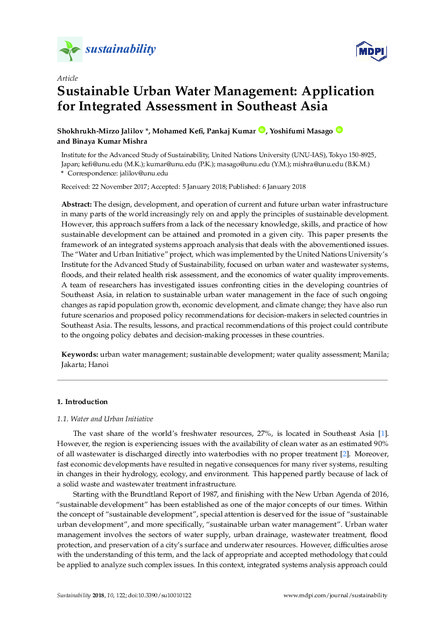
The design, development, and operation of current and future urban water infrastructure in many parts of the world increasingly rely on and apply the principles of sustainable development. However, this approach suffers from a lack of the necessary knowledge, skills, and practice of how sustainable development can be attained and promoted in a given city. This paper presents the framework of an integrated systems approach analysis that deals with the abovementioned issues. The “Water and Urban Initiative” project, which was implemented by the United Nations University’s Institute for the Advanced Study of Sustainability, focused on urban water and wastewater systems, floods, and their related health risk assessment, and the economics of water quality improvements. A team of researchers has investigated issues confronting cities in the developing countries of Southeast Asia, in relation to sustainable urban water management in the face of such ongoing changes as rapid population growth, economic development, and climate change; they have also run future scenarios and proposed policy recommendations for decision-makers in selected countries in Southeast Asia. The results, lessons, and practical recommendations of this project could contribute to the ongoing policy debates and decision-making processes in these countries.
Links
Resource collections
- UN Habitat - Urban Response Collection
- Urban Response - Urban Crisis Preparedness and Risk Reduction
- Urban Response Collection - Community Engagement and Social Cohesion
- Urban Response Collection - Economic Recovery
- Urban Response Collection - Environment and Climate Change
- Urban Response Collection - Housing, Land and Property
- Urban Response Collection - Urban Crisis Response, Recovery and Reconstruction
- Urban Response Collection - Urban Resilience